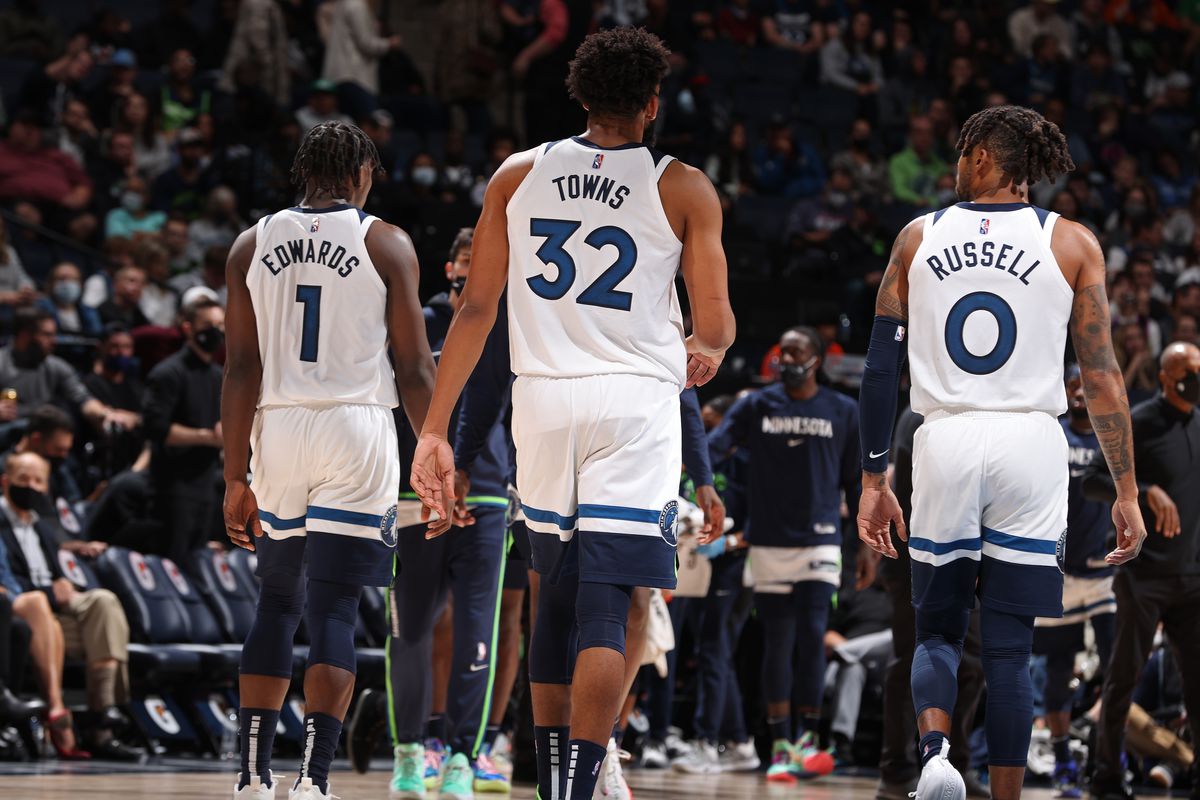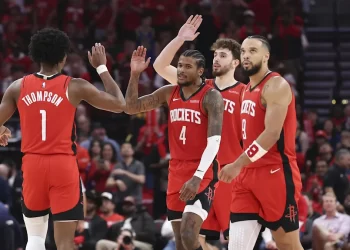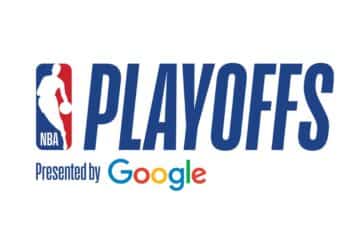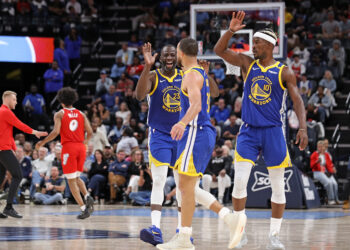By: Randall Gimm
The Minnesota Timberwolves record is currently 3-7, with a 6 game losing streak. They are shooting 41% from the field (Ranked 28th), 33% from Three (Ranked 21st). The Wolves defense: 9.6 steals per game (Ranked 4th), Opponent turnovers per game 18.7 (Ranked 1st).
Karl Anthony Towns is averaging 23 points and 9.8 rebounds per game, Anthony Edwards is at 26 and 6. Both KAT and Edwards are averaging 1.5 steals per game as well. D’Angelo Russell is averaging 17 points and 5 assists, shooting 38% from the field.
Timberwolves head coach Chris Finch has been hard at work designing the blueprint to his roster. Finch’s plan is to build our fundamentals as a team and with that, an identity. He had the team focus on defense, communication, as well as transition offense through training camp. That philosophy brought the Timberwolves to a 3-1 start, prior to a 6 game skid. The skid is a result of a lack of offensive identity when we get into the half-court.
Regardless of their record, the Timberwolves have shown signs of identity and a high desire to win. The Timberwolves bought into Chris Finch’s philosophy and the team is beginning to hold each other accountable. Anthony Edwards made mention of this after their loss to the Pelicans on Oct. 25th. “Me, KAT, and DLo got to do a better job of getting other guys the ball.”
Players like Josh Okogie, Jaden McDaniels, and Jarred Vanderbilt have been digging in defensively and not being rewarded on the other end. McDaniels and Vanderbilt have been playing around 20mpg and shooting the ball less than 5 times per game. Just like the Wolves learned how to be one of the top five defenses in the League (8 players averaging more than .75 steals per game), they can figure out how to move the ball more. The offense is Chris Finch’s specialty, after all.
The Timberwolves have been relying on Towns, Edwards, and Russell to make plays, and the other teams have taken notice. D’Angelo Russell has been struggling from the field and hasn’t been able to run the half-court offense effectively. Consistently, the Wolves have been taking shots that are open but only halfway through the shot clock. The Wolves need to move the ball more effectively as Edwards mentioned above. That comes with time. These losses are shining a light on the cracks that need to be filled before Chris Finch and company start building on the Wolves’ foundation.
The Wolves rank 30th in opponents’ rebounds per game, mostly due to their lack of size. The Wolves knew this coming in and it has been a point of emphasis all season. The Wolves want to get in transition and without being able to secure defensive rebounds, they can’t do that as often as they would like to.
That might be a reason why the Wolves have lost 10 point, even 20 point leads in the 3rd and 4th quarters. When they played the Grizzlies, we were up 12 with four and a half minutes left in regulation. When it comes to half-court scenarios and late-game situations, the Wolves don’t have that list of plays they can go to when the going gets tough. They scramble, Isolate 1v1 and ultimately, force a tough shot or turn the ball over. Gotta stick to the game plan. They failed to do that against the Clippers and even the Magic. The Clippers took over the second half when the wolves lost 126-115. The Wolves, on the other hand, gave the game to the magic all in the fourth quarter, forcing threes and going 4/21 from the field.
There are two last things I take away from the Timberwolves last 10 games. First, after their win against the Bucks, the Wolves thought it was sweet with other teams that are clearly worse than the Bucks. Anthony Edwards mentioned that exact thing after the Pelicans loss.
The Wolves have to take their wins with pride because the ultimate goal is a championship with this group. Not this year but within 5. A regular-season win or a buzzer-beating shot to go to overtime against the Grizzlies is extremely minimal to the ultimate goal. The team has to develop short-term memory.
Lastly, my favorite takeaway from the first 10 games is Anthony Edward’s budding leadership on this team. He has been more vocal on and off the court. He has been holding himself and others accountable, leading by example (48 points vs the Warriors in a loss), and maintaining a self-reflective, yet positive attitude. If he maintains that and his growth on the court, it’s scary hours for whoever has to guard Anthony Edwards.


 NFL
NFL




